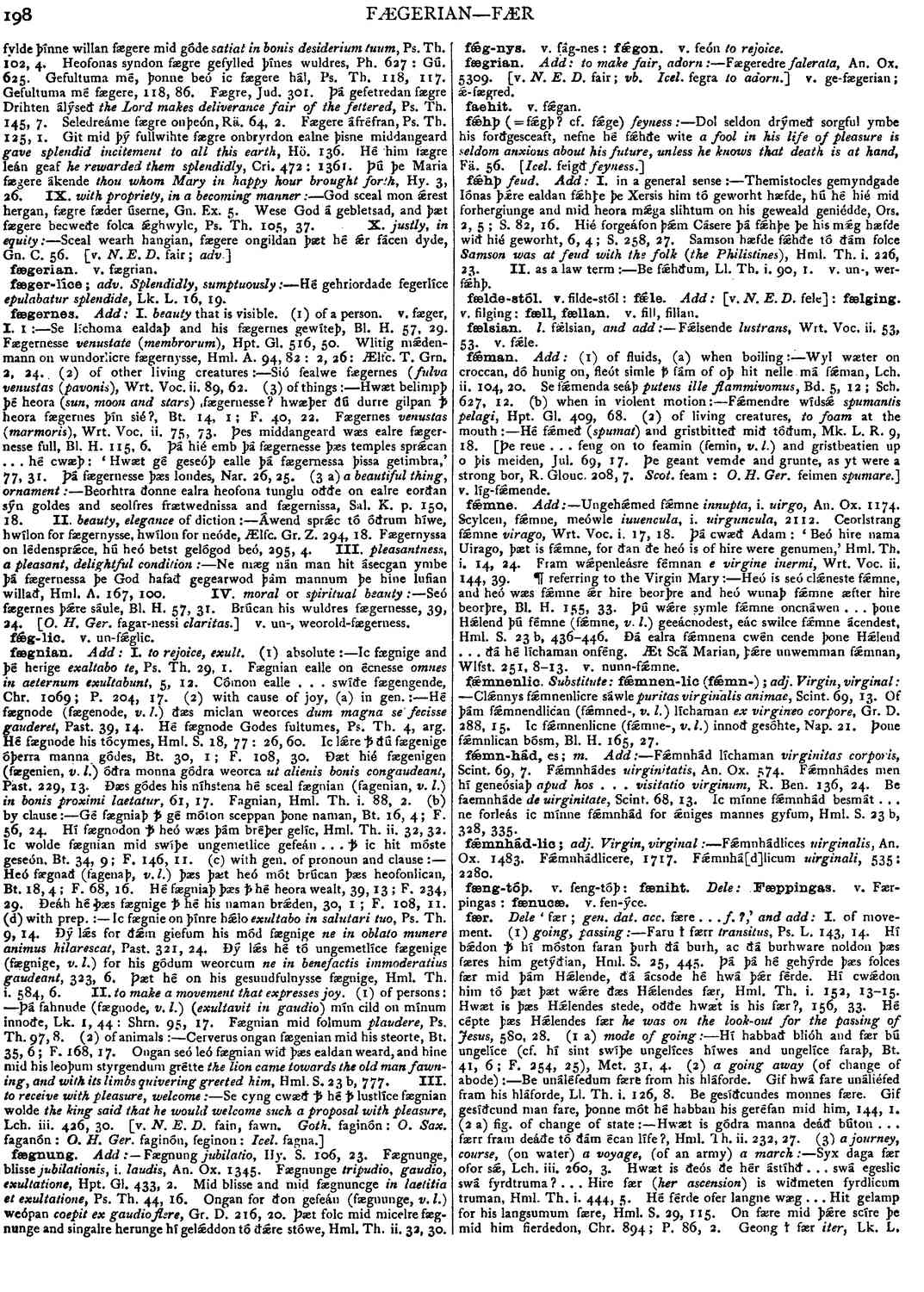fǽmne
-
Ungehǽmed fǽmne
innupta, i. uirgo,
- An. Ox. 1174.
-
Scylcen, fǽmne, meówle
iuuencula, i. uirguncula,
- 2112.
-
Ceorlstrang fǽmne
virago,
- Wrt. Voc. i. 17, 18 .
-
Þá cwæð Adam: 'Beó hire nama Uirago, þæt is fǽmne, for ðan ðe heó is of hire were genumen,'
- Hml. Th. i. 14, 24.
-
Fram wǽpenleásre fémnan
e virgine inermi,
- Wrt. Voc. ii. 144, 39.
-
¶ referring to the Virgin Mary:
Heó is seó clǽneste fǽmne, and heó wæs fǽmne ǽr hire beorþre and heó wunaþ fǽmne æfter hire beorþre,
- Bl. H. 155, 33.
-
Þú wǽre symle fǽmne oncnáwen . . . þone Hǽlend þú fémne (fǽmne, v. l.) geeácnodest, eác swilce fǽmne ácendest,
- Hml. S. 23 b, 436-446 .
-
Ðá ealra fǽmnena cwén cende þone Hǽlend . . . ðá hé líchaman onféng. Æt Sc̃a Marian, þǽre unwemman fǽmnan,
- Wlfst. 251, 8-13 .
Bosworth, Joseph. “fǽmne.” In An Anglo-Saxon Dictionary Online, edited by Thomas Northcote Toller, Christ Sean, and Ondřej Tichy. Prague: Faculty of Arts, Charles University, 2014. https://bosworthtoller.com/44361.
Checked: 1